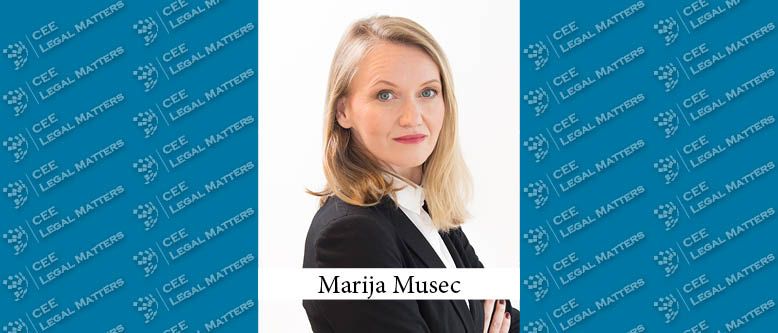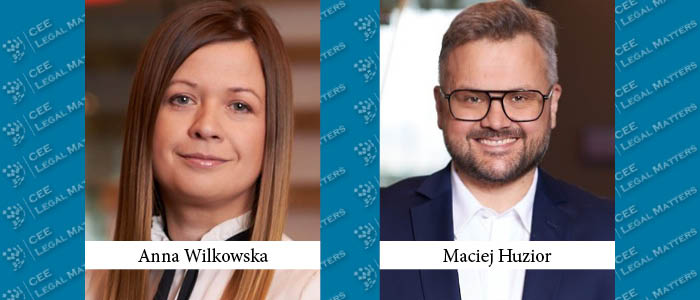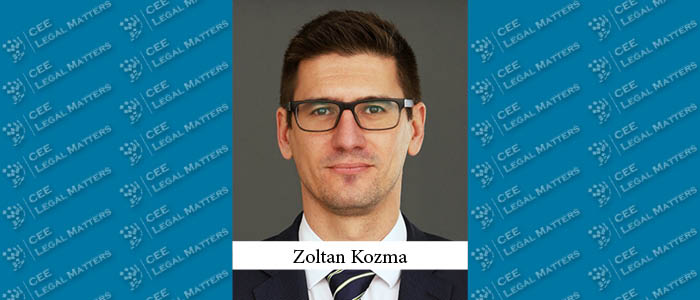When it first appeared, the compliance field seemed little more than “regulatory” in new clothes – a fancy name for making sure a company stayed within the ambit of provisions set out in the laws of a country. As time passed, however, more and more companies started treating compliance as a practice in its own right, and as a field of law … that is much more than just law. Compliance became an area of interest not only to seasoned lawyers, but also to scholars, consultants, and in-house counsels – all levels of legal practice became aware of its significance.
Marketing Law Firm Marketing: Not Enough Time
This time, our law firm marketing friends across CEE considered the following question: “What one part of your job would you most appreciate having more help with – not in terms of training or capability, but simply in terms of time?”
Is Pharma Adopting AI Quickly Enough?
Use of Artificial intelligence is growing rapidly. Some of the world’s largest industries are using AI as frequently as any other business tool. Still, there are industries which seem to be more risk averse. Pharma integrates AI at the rate of 31% in the service operations sector, 31% in the product/service development sector, and 27% in the marketing sector. Does that mean that pharma is lagging in implementing AI?
Get Out There to Make That Deal Happen
Ante Sucur has been the Head of Legal Affairs and Company Secretary at Mercury Processing Services International Ltd (formerly Intesa Sanpaolo Card Ltd) since 2009. Before joining Mercury, he worked for five and a half years at Privredna Banka Zagreb d.d. (which is also part of the Intesa Sanpaolo Group).
2019 Amendments of the Croatian Renewables Act
In December 2018, the Croatian Parliament adopted amendments to the Renewables Act and the Government adopted two implementing regulations, which jointly apply as of January 1, 2019 (the “2019 Amendments”). In this article we briefly outline the 2019 Amendments and then discuss how they affect the current Croatian incentives system for renewable energy sources (RES) and new investments in RES.
Automotive Industry Cross-Overs
On the eve of a widely-expected global economic downturn, the Croatian economy finally emerged from “junk” investment status, and rating agencies now rank it as “investment” tier. Formal confirmation of this new status is expected to come in the course of spring 2019 – when the first signs of a slowdown in the local economy are already signalled. The country’s GDP is growing shyly but persistently and after five years of membership in the EU there is a visible uplift in the trade balance with export of goods and services (predominantly with other EU-member countries) as the main driver.
Croatia Prepares for Application of Multilateral Instrument
International taxation is rapidly changing and aligning with recommendations of the Project for the Prevention of Base Erosion and Profit Shifting (BEPS).
The Features of Collective Redress in Croatia
The The rules on collective redress were first introduced in Croatia’s legal system by two special acts – the 2003 Consumer Protection Act and the 2009 Act on Prevention of Discrimination. It was only later, in 2011, that the Civil Procedure Act provided the general legal framework for collective redress actions, named “actions for the protection of collective interests and rights.”
Unfair Trading Practices in the Food Supply Chain – New Competence of the Croatian Competition Agency
At the EU level, long-term discussions on unfair trading practices in the food supply chain have resulted in the Proposal for a Directive that is currently in process. The Republic of Croatia has already adopted a law with a similar subject matter – the Act on Tackling Unfair Trading Practices in the Food Supply Chain (the “Act”) – which entered into force at the end of 2017. The Act concerns business-to-business relations and aims to protect suppliers (including primary producers) in their relations with resellers, buyers, and processors with significant negotiating power. The authority in charge of implementing the Act is the Croatian Competition Agency (the “Agency”), which the legislator considers the most competent to handle these matters due to its experience in abuse of dominance cases in competition law.
Marketing Law Firm Marketing: The Biggest Difference
The news that many of the legal markets in CEE impose stricter rules on law firm advertising and marketing than many of their Western counterparts comes as no surprise. Still, to explore this concept just a bit, for this issue, we asked law firm marketing and BD experts around CEE: “What, in your opinion, is the biggest difference between law firm marketing in your market and law firm marketing in London or New York?
Financing Options Under the Croatian Bankruptcy Act
Companies in financial difficulties are regularly faced with challenges in seeking fresh financing – an injection necessary for financial consolidation and to overcome financial difficulties. Such challenges become even greater when a company formally enters pre-bankruptcy or bankruptcy proceedings. In a large number of cases, the companies are in such difficult and irreversible circumstances that potential creditors are usually discouraged from providing new financing, which is sought by the companies unable to provide any indication of success. However, there are situations in which creditors may be willing to provide fresh capital despite the debtor’s difficult situation – most commonly, because they already have an outstanding exposure against the debtor. Existing creditors considering new financing may see an opportunity to exit the existing creditor-debtor relationship less “harmed.” In such cases, the main questions involve the position the creditors can obtain by granting fresh financing and whether the legislative framework regulating pre-bankruptcy proceedings is sufficiently sensitized to their specific position.
Public Trust in Land Registry – Can the Mortgage Holders Finally Have a Good Night’s Sleep?
In the Croatian legal system, the relation between two legal principles – the principle that no one can transfer more rights to another than he himself has, on the one hand, and the principle of public trust in land registry, on the other – has been the subject of significant analysis and numerous discussions and Croatian Constitutional Court decisions.
Additional Regulation of Data Protection – The Croatian Outlook
Starting May 25, 2018 the General Data Protection Regulation will come into effect. Although it will apply directly in all EU Member States, Member States have the option to add additional regulations to certain specific situations. This article sets out a brief overview of the key provisions of the draft of the relevant Croatian law, which is in procedure before the Croatian Parliament at the moment of writing of this article.
Inside Insight: Interview with Helena Kokot OF Zagreb International Airport
Helena Kokot is the Director of the Legal Affairs Department at the Zagreb International Airport. She joined the ZIA in 2014 after 12 years in the telecommunications sector with Croatian Telecom and T-Mobile Croatia. She got her law degree from the Faculty of Law at the University of Zagreb in 1999.
Now or Never: The Looming GDPR Deadline
The European Union’s General Data Protection Regulation is, according to the EU-hosted GDPR website, “the most important change in data privacy regulation in the past 20 years.” The Act, which was approved by the EU Parliament on April 14, 2016 and will become fully effective on May 25, 2018, was designed “to harmonize data privacy laws across Europe, to protect and empower all EU citizens’ data privacy, and to reshape the way organizations across the region approach data privacy.”
Advanced PPP Legislation But No Projects?
Croatia stands among the highest ranked countries when it comes to the compliance of its PPP legislative framework with international standards. Reports issued by international institutions such as the EBRD and the EIB have praised Croatia for its elaborate legal framework, strong institutional capacities, transparent procurement practices, easy access to justice (including arbitration), and a range of security instruments facilitating financing.
A Night of Celebration at CEE Deal of the Year Awards Banquet in Prague
The winners of the 2017 CEE Deal of the Year Awards were announced at the first ever CEE Legal Matters Deal of the Year Awards Banquet last night in Prague. The biggest smiles in the joyous and music-filled celebration of CEE lawyering, perhaps, were on the faces of Partners from Avellum and Sayenko Kharenko, which, along with White & Case and Latham & Watkins, won the award both for Ukrainian Deal of the Year and CEE Deal of the Year for their work on the 2017 Ukraine Eurobond Issue (a story initially reported by CEE Legal Matters on October 2, 2017).
Top Six Tax Topics Across SEE
Slovenia: Fine-Tuning of the Tax System
In the beginning of 2018, Slovenia introduced several minor and mainly administrative changes to its tax legislation, mostly addressing and resolving inconsistencies in the legislation that had been detected in practice.










































